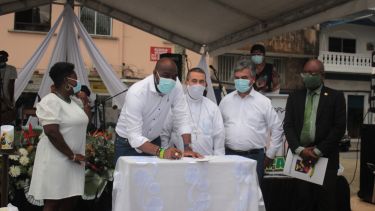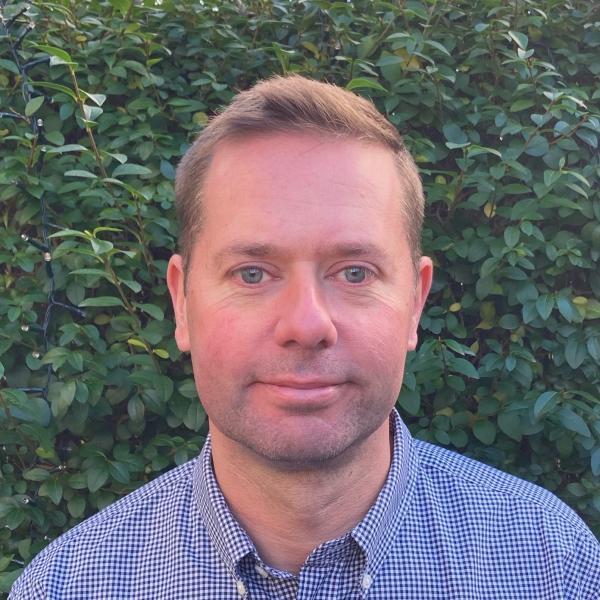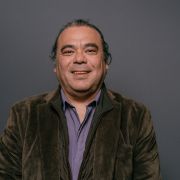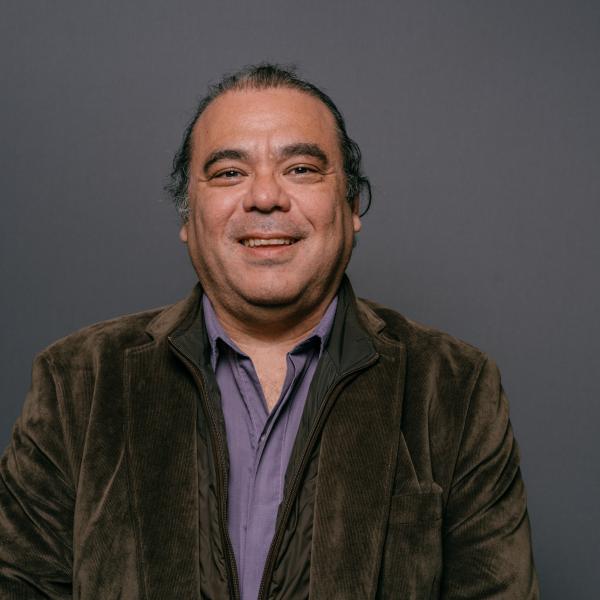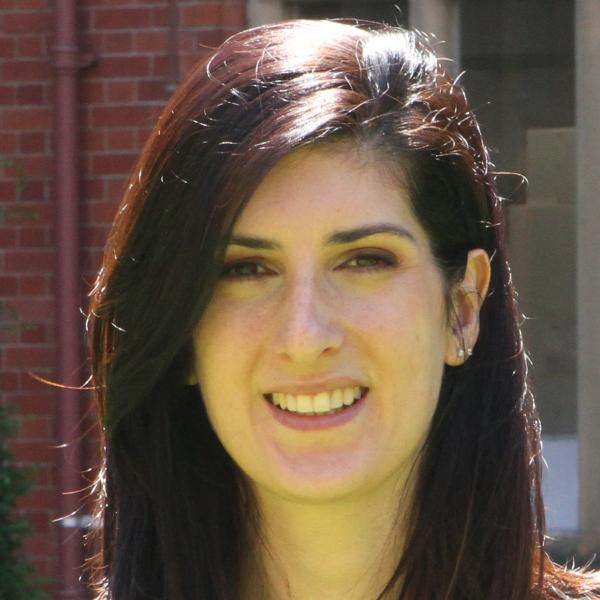Co-developing a city-wide strategy for peace
People in Buenaventura face ongoing violence from armed organisations. Researchers at the University of Sheffield and their partners at Javeriana University, CINEP and CORMEPAZ have been awarded the Economic & Social Research Council’s Societal Impact Prize for the coproduction of a peace strategy.

Home to Colombia’s most important port, Buenaventura is responsible for more than half of the country’s international trade. Yet, despite exporting the majority of the nation’s coffee, sugar, cotton and natural resources, the city faces internal violence and an unemployment and poverty rate twice the national average.
After almost five decades of Colombia’s civil war, and five years of supposed ‘peace’, Buenaventura has become known as one of the most dangerous cities in South America. Its position on the coastline has established it as a hub for drug trafficking and other criminal operations.
In 2016, the Revolutionary Armed Forces of Columbia (FARC) and the Colombian government negotiated a country-wide peace agreement that marked the end of the conflict between the two parties. Initially, this agreement created hope for a more peaceful future, and inner-city violence and murder rates fell to a 40-year-low.
But whereas some other locations in Colombia began to see improvements in post-conflict security, a lack of state presence in Buenaventura resulted in the city being left behind. Local youth became targets for recruitment amongst other armed groups and new conflicts emerged as a result of the national-level peace agreement. Through the use of terror tactics, criminal gangs destabilised communities across the city. Over the past two years, locals have endured a new wave of violence from competing crime organisations, leading to an increased rate of disappearances and homicides.
In January 2020 a new local administration was elected, promising to urgently address the high levels of crime and violence in the city. Improbable Dialogues, an international research project, worked in collaboration with community organisations and the local administration to develop a roadmap to lasting, sustainable peace in the city.
Led by Professor Simon Rushton at the University of Sheffield and Professor Jefferson Jaramillo at Javeriana University, the project collaborated with CORMEPAZ - a Buenaventura-based human rights organisation - and a range of local community groups to build networks and co-develop a city-wide peace strategy.
Funded by the Economic and Social Research Council and their partners Minciencias through the Newton Fund, the project adopted a participatory, grassroots approach that relied on the expertise and idea generation from the local population. Such an approach was particularly important given the unique political history of Buenaventura. The city’s population - the majority of whom are Afro-Colombian - had persistently appealed for improved living and social conditions, such as basic sanitation and access to running water. These needs were repeatedly neglected by the Colombian government.
In May 2017, the people in the city joined together in a civil strike to demand improvements in health, water and education and halted the movement of over 230,000 tonnes of cargo.
After 18 days of disruption to the port, the government pledged to invest $150 million in infrastructure projects and hospitals. Two years later, the leaders of the strike were elected to form the new city government. As a result, the connections between the city leaders and grassroots community groups were much stronger than is commonly the case in Colombia, and there were high expectations that people in the city would have a say in determining their own future.
The participatory approach of the Improbable Dialogues project allowed for these ideas to be developed by and for the community, building on the research team’s desire to facilitate local knowledge production without imposing ideas from the outside. Combining community involvement with proven academic methods, the team gathered information through focus groups, interviews and participatory video projects, as well as a series of community-level dialogues bringing together representatives from a wide range of sectors.
This participatory research assembled different members of the Buenaventura population such as teachers from community groups, the private sector, officials from local governments and local citizen researchers for the first time. Having felt repeatedly ignored by the official government, participants were keen to be involved with a non-traditional approach to producing change.
Overcoming the physical challenges presented by the pandemic, researchers adopted new ways of working on the project, using virtual meetings to discuss the roots of inner-city conflicts. Using the views of different members of the community, themes of territorial development, basic services and media influence were explored.
Together we worked on creating a city peace strategy but the content of the strategy came from the community participants themselves, not us. The Societal Impact Award is a recognition and validation of all their hard work.
Professor Simon Rushton
Professor of International Politics in the Department of Politics and International Relations at the University of Sheffield
The co-produced strategy for peace has now been formally adopted by the Municipal Council. The Mayor has also created an office for Peace and Coexistence Programmes to support the implementation of the strategy and provide a safe, secure place for those involved.
“The acceptance of the strategy for peace is a huge milestone for the Improbable Dialogues project. This is down to the dedication and commitment of the community. But I see this as the beginning of a long term process with an ongoing partnership that doesn't have an end date. The funding awarded from the Societal Impact Prize will help us to keep the project moving forward” says Prof Simon Rushton.
As well as working on developing the peace strategy, the project provided training and support to participants involved to facilitate dialogue and work in their communities to implement the strategy. So far, fifty locals have completed a skills-based training programme to support inter-community discussions about violence. Known as peace facilitators, these individuals will work on generating new conversations with stakeholders and bring communities together to implement solutions on the ground.
The Improbable Dialogues team continues to work on providing support to the people of Buenaventura, and is offering opportunities for locals to conduct detailed self research.
There remain some elements of the peace strategy that will have to be administered by the local government, rather than an external research project. However, the project has started work on events to build relations between local community groups and the private sector of the city.
The project still initiates new ‘improbable dialogues’ across the city. With the continued support of peace facilitators, this research project will encourage more groups in the city to unite to achieve their shared goal of improving living conditions for the people of Buenaventura.
Written by Alina Moore, Research Communications Coordinator

